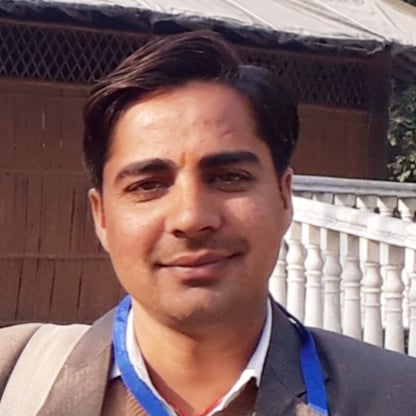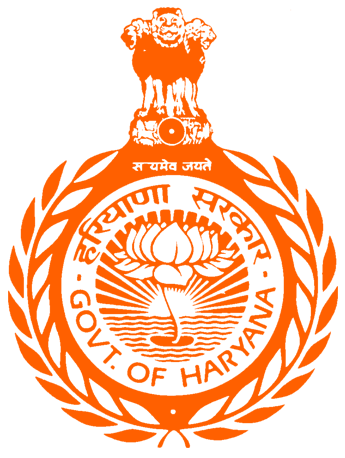POLITICAL SCIENCE
Dr, Rohtash Kumar, M. A., Ph. D., NET, Emp. Id : 094640 Lecturer in Political Science

Class 11th Syllabus,
POLITICAL SCIENCE (Code No. 028)
(2022-23)
Rationale
At the senior secondary level, students who opt for Political Science are given an opportunity to get
exposed to the diverse concepts of the discipline helping them to be a global citizen and develop skills to
understand, apply and evaluate. At this level, there is a need to enable students to have the skills to
engage with political processes that surround them and provide them with an understanding of the
historical context that has shaped the present. The different courses expose the students to various
streams of the discipline of Political Science: Political Theory, Indian Politics and International Politics.
Concerns of the other two streams – Comparative Politics and Public Administration- are accommodated
at different places in these courses. In introducing these streams, special care has been taken not to
burden the students with the current jargon of the discipline. The basic idea here is to lay the foundations
for a serious engagement with the discipline and develop competencies related to Political Science to
prepare them for higher education, learning and knowledge.
Competencies and Outcomes:
1. Indian Constitution at Work:
1.1 Competency: Understanding, identifying and analyzing the key features, historical processes and
working of the Constitution of India.
1.2 Outcomes: The students will:
1.2.1 Understand the historical processes and the circumstances in which the Constitution was
drafted.
1.2.2 Be familiar with the diverse perspectives that guided the makers of the Indian Constitution.
1.2.3 Identify key features of the Constitution and compare these to other constitutions in the
world.
1.2.4 Analyse the working of the Constitution in real life.
2. Political Theory:
2.1 Competency: Understanding, critically evaluating and applying political theory
2.2 Outcomes: After the course the students will:
2.2.1 Understand different themes and thinkers associated with the real life.
2.2.2 Develop the skills for logical reasoning
2.2.3 Meaningfully participate in the issues and concerns of political life surrounding them.
3. Contemporary World Politics:
3.1 Competency: Understanding, analyzing the Contemporary World Politics
3.2 Outcomes: After the course the students will:
3.2.1 Understand the contemporary world.
3.2.2 Understand the key political events and processes in the post-cold war era.
3.2.3 Analyze various global institutions, processes and events shaping their lives.
4. Politics in India after Independence:
4.1 Competency: Critically evaluate and understand, analyze politics in India after Independence
4.2 Outcomes: After the course the students will:
4.2.1 Understand and analyze constitutional institutions, figures and their working in the postindependence period; political events, trends, other facts and figures and contribution of
eminent personalities from the post-independence to contemporary India.
4.2.2 Develop their capacity to link political policies and processes with contemporary realities.
4.2.3 Encourage the students to understand and analyse the challenges for contemporary India.
POLITICAL SCIENCE (028)
Class XI (2022-23)
Total Marks = 100(80+20)
A.Theory Max Marks: 80
Time: 3 hrs.
Part A: Indian Constitution at Work
Units Contents Marks
1 Constitution 12
2 Election and Representation
10
3 The Legislature
4 The Executive
08
5 The Judiciary
6 Federalism
10
7 Local Governments
Total 40
Part B: Political Theory
Units Contents Marks
8 Political Theory: An Introduction 04
9 Liberty
10
10 Equality
11 Justice
08
12 Rights
13 Citizenship
10
14 Nationalism
15 Secularism 08
Total 40
B. Project Work: 20 Marks
Grand Total = 100 Marks
COURSE CONTENT
Part A: Indian Constitution at Work
1. Constitution 28 Periods
Constitution: Why and How, The Making of the Constitution, Fundamental Rights and Duties, Directive
Principles of State Policy, constitutional Amendments.
2. Election and Representation 12 Periods
Elections and Democracy, Election System in India, Electoral Reforms.
3. Legislature 16 Periods
Why do we need a Parliament? Unicameral / Bicameral Legislature. Functions and Power of the Parliament,
Parliamentary committees. Parliamentary Officials: Speaker, Deputy Speaker, Parliamentary Secretary.
4. Executive 16 Periods
What is an Executive? Different Types of Executive. Parliamentary Executive in India, Prime Minister and
Council of Ministers. Permanent Executive: Bureaucracy.
5. Judiciary 16 Periods
Why do we need an Independent Judiciary? Structure of the Judiciary, Judicial Review, Judicial Activism,
Judicial Over-reach.
6. Federalism 14 Periods
What is Federalism? Evolution & Growth of the Indian Federalism: Quasi Federalism, Cooperative
Federalism & Competitive Federalism.
7. Local Governments 12 Periods
Why do we need Local Governments? Growth of Local Government in India, 73rd and 74th
Amendments, Working and Challenges of Local Governments.
Part B: Political Theory
8. Political Theory: An Introduction 08 Periods
What is Politics? Politics V/s Political Theory, Importance of Political Theory.
9. Liberty 12 Periods
Liberty V.s Freedom, Negative and Positive Liberty.
10. Equality 12 Periods
What is Equality? Significance of Equality. Various dimensions of Equality. How can we promote Equality?
11. Justice 14 Periods
What is Justice? Different dimensions of Justice, Distributive Justice.
12. Rights 14 Periods
What are Rights? Where do Rights come from? Legal Rights and the State. Kinds of Rights.
Human Rights.
13. Citizenship 12 Periods
What is citizenship? Citizen and Citizenship, Citizen and Nation, Global Citizenship
14. Nationalism 16 Periods
Nations and Nationalism, Variants of Nationalism, Nationalism, Pluralism and Multiculturalism.
15. Secularism 18 Periods
What is Secularism? What is Secular State? The Western and the Indian perspectives to Secularism. Salient
Features of Indian Secularism.
Prescribed Books:
1. Indian Constitution at work, Class XI, Published by NCERT
2. Political Theory, Class XI, Published by NCERT
3. Reference Material available with the document
Note: The above textbooks are also available in Hindi and Urdu versions.

